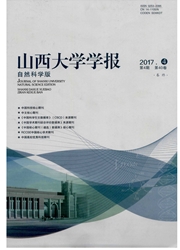

 中文摘要:
中文摘要:
以大蒜为材料,研究不同酸度(pH4.5和pH5.8)的铝溶液对蒜苗根系的氧化损伤和遗传损伤.结果表明,经10umol/L~1000umol/L的铝处理后,大蒜根系抗氧化酶SOD、POD、CAT活性改变,pH4.5的铝组酶活性呈诱导性增高,而pH5.8时高浓度组酶活与对照接近,其余铝组酶活性降低,但pH4.5和pH5.8的铝处理均能使细胞MDA含量增加.5umol/L~100umol/L的铝处理能导致大蒜根尖微核细胞率增加,且显著增加的铝浓度在pH4.5时较低.研究结果表明,铝对植物细胞具有遗传损伤作用,可能与铝胁迫引起的氧化损伤有关,环境酸度增强能加重铝对植物的毒害.
 英文摘要:
英文摘要:
Genotoxicity and oxidative damage of aluminum (A1) on plant cells was studied in Allium sativum L. root cells at pH 5. 8 and pH 4. 5, respectively. Exposure to 10 umol/L to 1 000 umol/L aluminum trichloride solution containing 100 umol/L Ca^2+, activities of superoxide dismutase (SOD), peroxidase (POD) and catalase (CAT) increased significantly in plant roots at pH 4. 5, but enzymes activities decreased at pH 5. 8 except in higher concentration treatment groups. However, A1 treatments both at pH 4. 5 and pH 5. 8 caused marked increases in MDA contents in root cells. Furthermore,Al treatments induced micronucleus formation in the range of 5 to 100umol/L,and higher toxicity occurred in pH 4.5 groups than those in pH 5.8 groups. Our results indicate that aluminum trichloride is a genotoxic agent in plant cells,and its toxicity is enhanced at low pH value. Our results suggest that the genoxicity may result from the oxidative stress by Al.
 同期刊论文项目
同期刊论文项目
 同项目期刊论文
同项目期刊论文
 期刊信息
期刊信息
